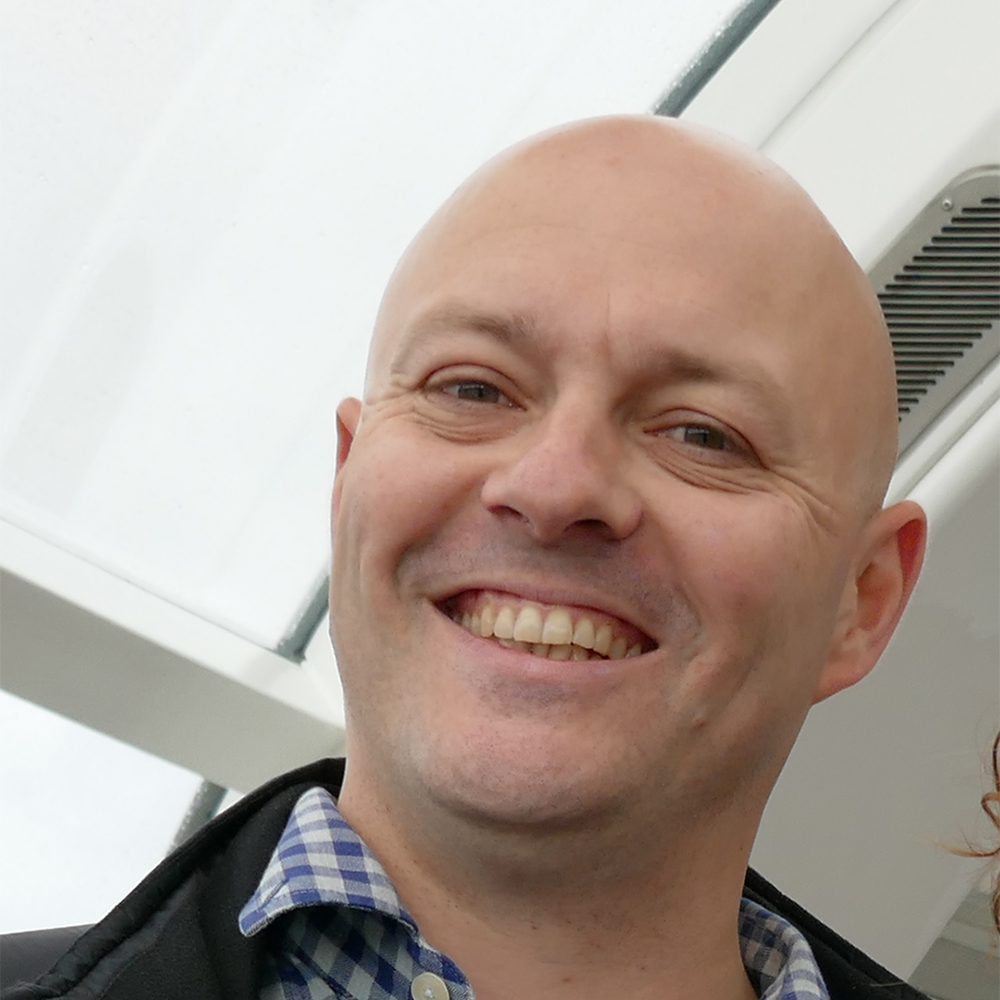About 120 amateur astronomers gathered in the Brecon Beacons last weekend for AstroCamp 2017. Image Credit: Jamie Carter
To the uninitiated, a cloudy Cwmdu campsite in the Brecon Beacons last weekend (23-26 September) looked like the venue for the World Outdoor Toilet Summit.
Strewn with tents, beach shelters and gazebos, its immaculate lawns were an odd sight indeed as the covers waited to come off a dizzying (or should that be drizzle-ing) array of, thankfully not toilets, but telescopes. AstroCamp 11 was about to begin.
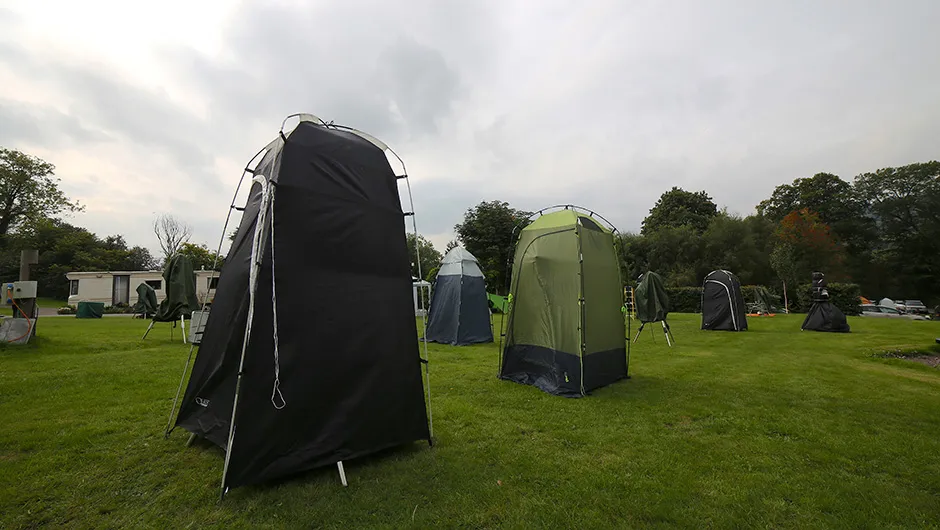
This twice-yearly, three-night star party in the Brecon Beacons International Dark Sky Reserve bills itself as 'the star party for everyone', and nowhere is that more obvious that on The Common.
Although people do have telescopes and cameras set up around their tents, it's in this central area that AstroCamp really stands out from other star parties; amateur astronomers of all levels – from novices to seasoned experts – swap tips and exchange astronomical views in an impressively relaxed atmosphere.
"It's so warm and welcoming here," says John Higgs from Caversham, who's rekindled his interest in astronomy by attending the last two AstroCamps.
"I've been to some astronomy meetings where I found the people hard to approach, but there are no barriers here – there's no 'I know more than you' attitude, just an accepting atmosphere no mater what your level of education is.
It's so open, liberating and stimulating."
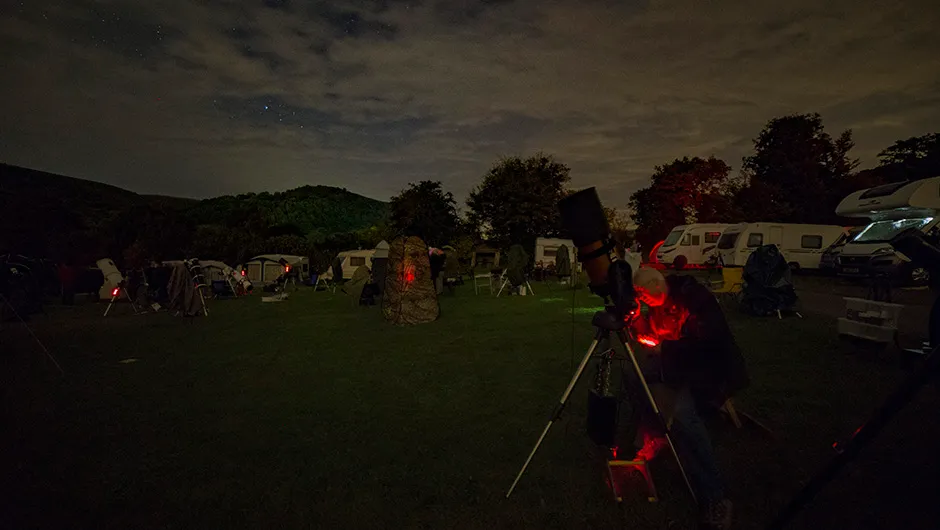
As darkness fell on The Common, visual amateur astronomer Alan Beech, from Manchester, chased as many Messier objects as possible through his Celestron NexStar 8SE.
Together we bagged globular clusters M13, M15 and M92, the magnificent Ring Nebula (M57), a string of open clusters in Gemini and, of course, M31, the Andromeda Galaxy.
"We've had people here who arrive with a 10-year old telescope that they unpack from its original box, who then admit that they haven't got a clue how to use it," says Alan.
"And that's absolutely fine – that's what we're here for.
You can leave here knowing how to operate your telescope."
12-inch Orion SkyQuest Dobsonian 'scope owner Simon Hartless from Newton Regis agrees.
"The atmosphere is unintimidating; anybody can come along with or without a 'scope, and make lots of new friends," he says.
"At AstroCamp you can look at the same object though dozens of different telescopes and eyepieces, something you would never be able to replicate at home on your own."
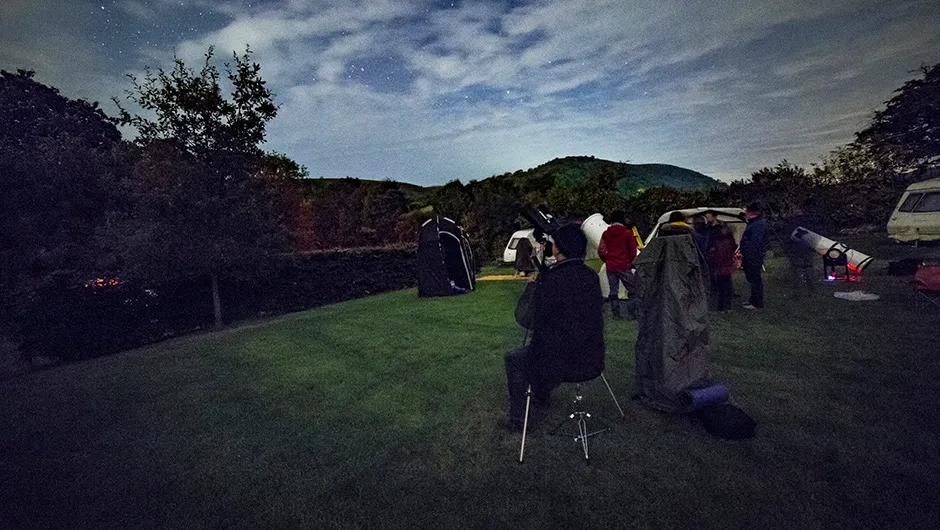
As the night got darker, colder and, sadly, cloudier, I swapped to some mounted binocular astronomy as the Pleiades (M45) was just visible rising over the Black Mountains.
That sparkling cluster was followed quickly by the constellation of Taurus, and it was hard to resist a quick peek at its supernova remnant, the Crab Nebula (M1) through 'Bob The Dob', the resident 16-inch Dobsonian assembled by one of the volunteer organisers, John Wildridge.
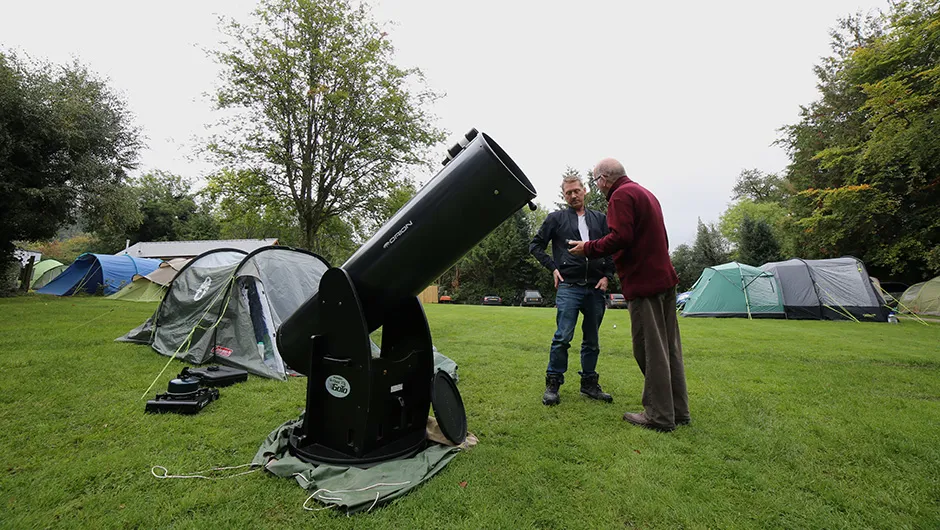
However, if you do already have an astronomy background and want to delve deeper into a niche, AstroCamp also delivers.
"Around the camp we've got various loose groups," says Ralph Wilkins, another of the organisers, who helps host the Awesome Astronomy podcast.
"Most visitors are visual astronomers, but about 25 per cent are astrophotographers, who tend to congregate at the top of the field," he says.
"Then there's a 'Dob' Alley', and another small group who take star trail photos. But there are no cliques and we try to keep it as affordable as possible.”
At £42.50 for three nights, it's a thoroughly accessible event for all.
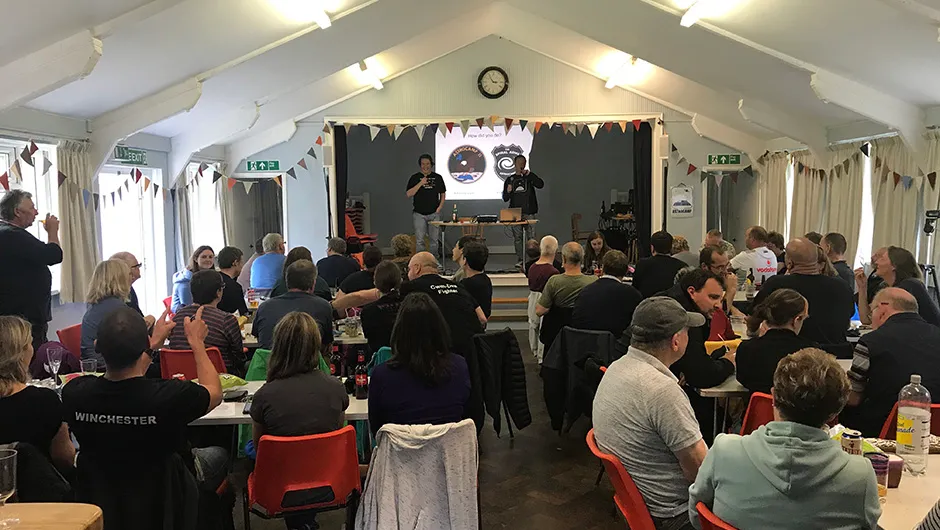
Though it's the people and the welcoming that make AstroCamp so successful, it's held where it is because of Cwmdu's dark skies (cwm du actually means 'black valley' in Welsh).
That darkness was threatened earlier this year when, during April's AstroCamp, it was noticed that several bright, white LED streetlights had been erected nearby.
"It was a shock, even to the National Park authorities, and the International Dark Sky Association threatened to take away the area's Dark Sky certification," says Paul Hill, one of AstroCamp's organisers, who explains that though the orange light of old sodium streetlights can be filtered out by astronomers, white LED light is almost impossible to counter.
"The local councillor was very helpful, and it also helped that many of the local people in Cwmdu hated the new LED lights.
For this AstroCamp the authorities agreed to dim the lights by 33 per cent around the campsite between 10pm and 5am, which suited us."
If this trial is deemed to have worked – meaning no road accidents – it's likely that the trial will be rolled out across the Brecon Beacons
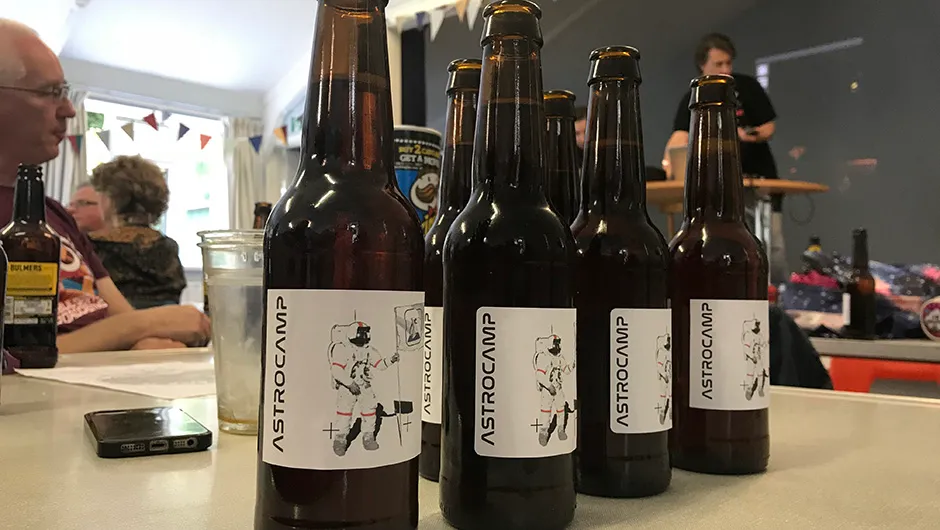
Aside from stargazing between the clouds, AstroCamp also included a guest lecturer and quizzes in pop-up pub 'The Spiral Arms' in the local village hall.
This year Jeni Millard from Cardiff University's School of Physics and Astronomy gave an excellent talk entitled 'Exoplanets: Exploring New Worlds' and also discussed her recent research trip to the South African Astronomical Observatory (SAAO).
Amateur astronomer James Fulton then made an emotional appeal for help with his project to help ex-military personnel overcome post-traumatic stress disorder with astronomy; something he's found integral to his own recovery (if you can offer any help, email him at james.fulton@ymail.com).
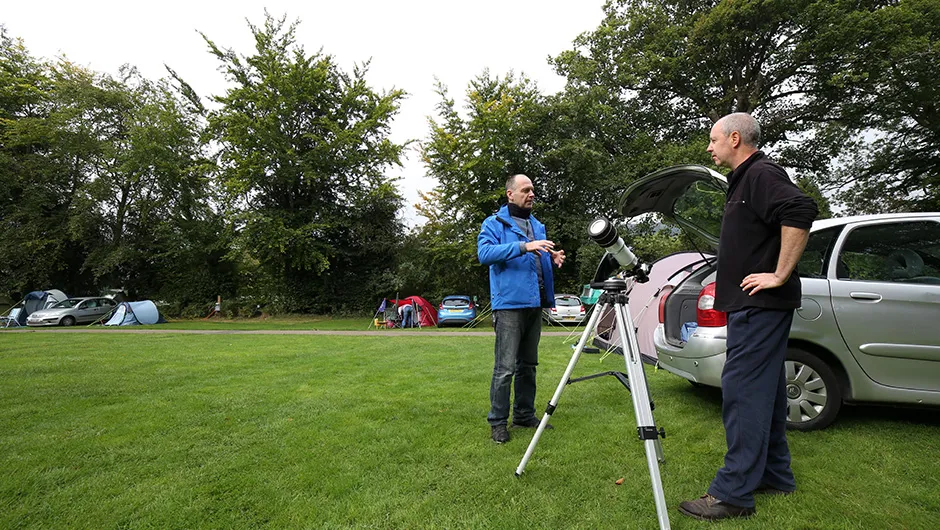
We just thought we should have a weekend away where we invite our mates to somewhere really dark outside of London and do astronomy, and we're now in the sixth year," says AstroCamp organiser Paul Hill, who tells me that the idea came out of the Baker Street Irregular Astronomers group that meet in Regents Park in London.
"And we're going to do it for as long as we keep enjoying it."
The 120 like-minded visitors – most of whom made the journey alone to meet-up with friends old and new – will hope that's a long, long time.
